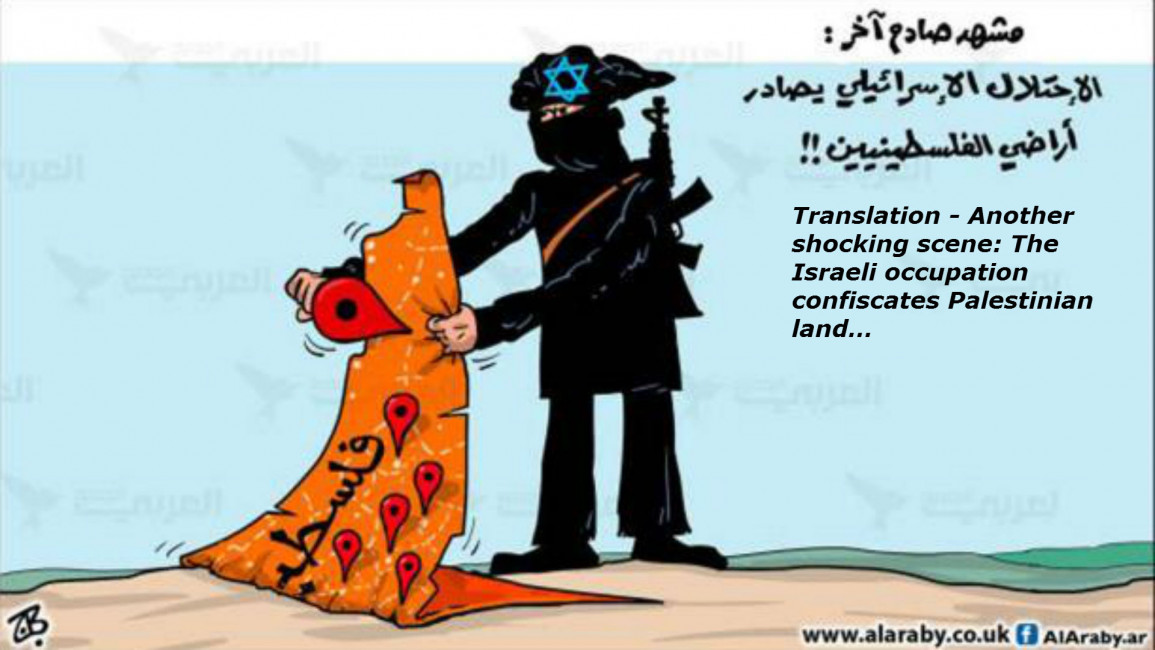
The unIslamic State is winning the media war
Images of individual and mass executions and beheadings have become synonymous with the Arab world, in both Western and Arab media. One reason may well be the brutal nature of the crimes involved, but another is the fact that have been documented with photos and videos in a way that no newspaper, television network or website can ignore.
The Islamic State group (IS, formerly known as ISIS) is not only good at making news, but also at making powerful images. As a consequence, the media diminishes those of us using these images. Set against them, the images of Israeli crimes become faded, and footage of the terror of the US invasion of Iraq vanish from memory. Life-affirming images of Arab revolutionary hopes disappear, as the so-called “Islamic State” – known in the region by its Arabic acronym “Daish” - lends itself to the Orientalist narrative, which sees nothing in the Middle East but backwardness, fragmentation, tribalism and fanaticism.
| The “Islamic State” sees its crimes as a propaganda opportunity... The group circulates these images to instil terror on a wide scale. |
If we want to understand the extent of the untold damage the execution videos have caused, let us consider for a moment how these images eclipse the footage of Israeli crimes caught sometimes – by sheer coincidence – by surveillance cameras. Even the Arab media barely includes them in their headlines or coverage these days, and when the Arab or international media do cover them, it doesn’t tend to lead to global outrage. Indeed, the self-styled “Islamic State” is now the undisputed international star of horror and gore.
The Arab media has failed miserably. We rarely see footage of kidnappings or executions perpetrated by Israelis – such as film of the Palestinian child Mohammed Khudair, who was kidnapped and burned alive by Israeli settlers, or the execution of Kheir Hamdan, accused of attacking a police vehicle with a knife – occupying the headlines of Arab newspapers and bulletins. This makes it easier for Israel to escape punishment and deny accountability for the perpetrators, usually Israeli police officers, soldiers, or settlers - despite the fact that they are often very well known.
The “Islamic State” sees its crimes as media and propaganda opportunities. The group deliberately circulates footage and images to instil terror on a wide scale. Media outlets subsequently compete with one another to disseminate them, especially since some of the executioners caught on film happen to be Westerners, making the story more sensational than the murder of a young man or woman under Israeli occupation. Images of the Islamic State group’s killings have come to dominate world news headlines, while footage of the major killings taking place elsewhere rarely make the cut.
Surveillance camera footage often makes it to YouTube. In most cases, it spreads across the internet without a lot of fanfare in the mainstream media. Regional media similarly pays little attention - as the videos are already online, Arab outlets think the material cannot be newsworthy, despite documenting proof of crimes.
| The propaganda of the Islamic State group portrays us all in the group’s image in the global imagination. |
In this respect, the Arab media are behind their Western counterparts, despite Western media’s bias towards Israel in most cases. In two specific cases, the footage of the murder of two young Palestinians near Ramallah on the anniversary of the Nakba by the Israeli police, and with the lynching of Mohammed Khudair, Western media covered the story with more interest than the Arab media.
I don’t know how to explain this. Have Israeli crimes become “ordinary”, and “uninteresting”? Or is it that we – all of us, including media workers - do not believe we are able to do anything positive? Human rights and international solidarity activists working in Palestine were the first to draw global attention to Israeli crimes, prompting Western media coverage - while no credit can be given to the Arab media in this regard.
The images and videos of the Islamic State group not only distort the international image of the Arab world, and portray us all in the group’s image in the global imagination, but they also make us complacent about the rights of our people, in Palestine and elsewhere. The public relations triumphs of the murderous group that call themselves the “Islamic State” are beyond distortions; our response to them has done a great injustice to the Arab peoples and their human and legal rights.
This is an edited translation from our Arabic website.
Opinions expressed in this article remain those of the author and do not necessarily reflect the opinions of al-Araby al-Jadeed, its editorial board or staff.




